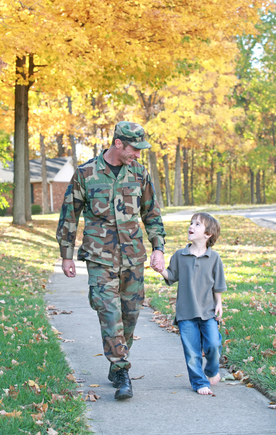A few months ago I received a grant from the U.S. Department of Education to develop a strategic model for school-based mentoring (SBM) that school districts can use to support students whose families serve in our country’s military (http://drtimcavell.com/serving-children-military-parents/). We plan to develop, refine, and evaluate a practical and sustainable SBM program for military-connected students that is coordinated by school districts and implemented by elementary schools with assistance from local mentoring agencies.
We’ll work closely with key stakeholders to develop our model, including military parents, the local school district, and the local mentoring agency. Our project site is Olympia, WA, a community with a large military presence due to its proximity to Joint Base Lewis-McChord. Last night I returned from a week long trip to Olympia where my colleague (Dr. Renee Spencer) and I met with several of these key stakeholders.
We met with the hard-working staff from Big Brothers Big Sisters of SW Washington and learned about the importance of screening and training volunteers so that the risk of harm to mentored children is greatly reduced.
We met with staff from North Thurston Public Schools, a lovely and progressive school district located just outside of Olympia. We learned of their innovative programs for military-connected students and met their Superintendent, Raj Manhas. This school district is performing so well that a recent bond election passed with a 68% approval.
And we met with military parents. We conducted two focus groups on two separate evenings and learned so much from these folks. We were struck by the huge sacrifices these families make when a parent is deployed or in training or when the entire family has to move—yet again.
Perhaps the biggest learning was about the apparent contradiction between the needs of military families and their tendency to pass on supportive programs.
We asked what they thought about having their child in a school-based mentoring program. Their usual first response was one of caution and wariness. This puzzled us until we also learned that military parents are often working single-handedly in the job of raising their children. Military life pulls one parent (sometimes both parents) away for extended periods of time, so the parent at home is on 24/7 cooking, cleaning, comforting, and making all the tough decisions. These are very caring and informed parents, but they simply don’t have the time to lift their head and consider whether one more military program will be worth their time and effort.
However, we also learned that if these parents knew their child was in a positive mentoring relationship such as those offered by Big Brothers Big Sisters in a school district as compassionate as North Thurston, they would be overjoyed. They loved the idea of their child having fun in a safe environment with a carefully screened and well trained volunteer. And they really liked the idea of getting a break from being the only adult who is showing their son or daughter consistent time and attention.
We walked away from the focus groups with a deep respect for these parents and an even stronger commitment to get it right as we develop our model of supportive mentoring for their children.


Leave A Comment